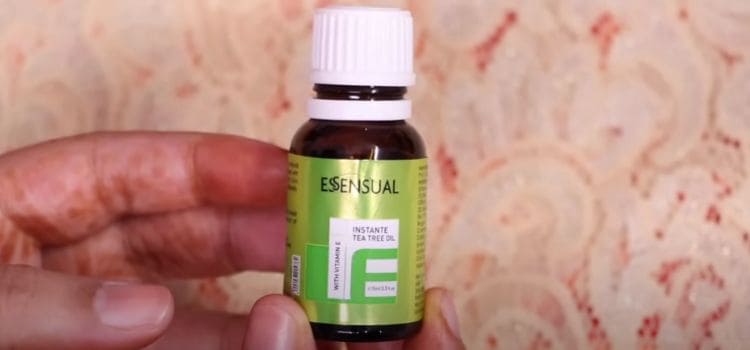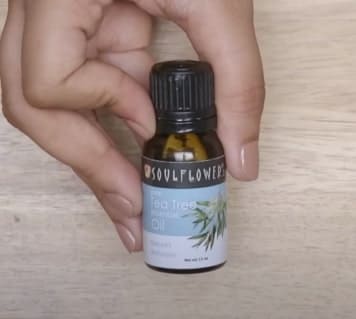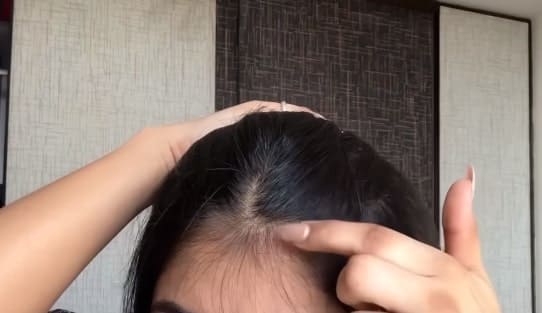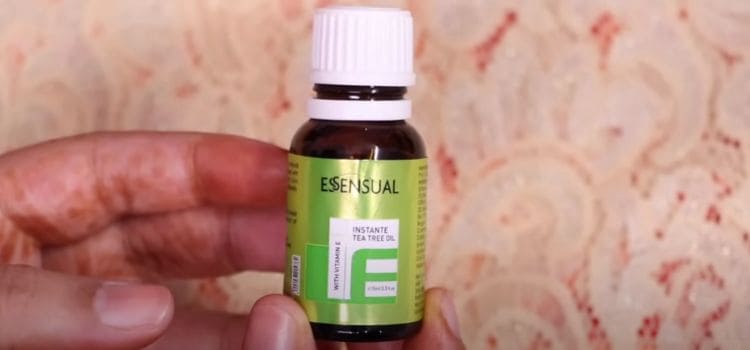As an Amazon Associate, I earn from qualifying purchases

Tea tree oil has gained popularity for its numerous benefits for hair and scalp health. It has been used for centuries to treat various hair and scalp conditions, including dandruff, dryness, and itchiness. Given the multitude of options in the market, selecting the optimal tea tree oil for your hair can be a dreadful task.
In this blog post, we will explore the different factors to consider when selecting a tea tree oil product and provide recommendations for the best tea tree oil for hair. Whether you are dealing with specific hair concerns or simply want to incorporate tea tree oil into your hair care routine, this guide will help you make an informed decision.
Introduction to Tea Tree Oil for Hair

Tea tree oil is a natural essential oil that has become increasingly popular for its numerous benefits for hair and scalp health. It has a long history of use in traditional medicine, particularly in Australia where the tea tree plant is native.
Recognized for its antibacterial, antifungal, and anti-inflammatory properties, tea tree oil proves to be a expert ingredient for addressing diverse hair and scalp conditions. It can help to combat dandruff, dryness, itchiness, and even lice infestations.
When it comes to incorporating tea tree oil into your hair care routine, it’s important to choose the right product. With an affluence of options in the market, it can be challenging to ascertain which one is the most suitable for your specific requirements.
Factors to Consider When Choosing Tea Tree Oil for Hair

When it comes to choosing tea tree oil for your hair, there are a few factors to consider. Firstly, you should look for 100% pure tea tree oil. This guarantees that you receive the complete benefits of the oil without any in addition ingredients or fillers.
Next, consider the concentration of the tea tree oil. Some products may have a higher concentration, while others may be diluted. Higher concentrations of tea tree oil may be more effective for treating specific hair or scalp concerns, but it’s important to follow the instructions and not use undiluted tea tree oil directly on your scalp.
Another factor to consider is the brand or manufacturer of the tea tree oil. Look for reputable brands that have a good reputation for producing high-quality products. You can also read reviews or ask for recommendations from others who have used tea tree oil for their hair.
Additionally, consider the price and value for money.
The cost of tea tree oil may fluctuate based on the brand and the size of the bottle. Compare prices and consider the amount of product you are getting for the price to determine if it is a good value.
Lastly, consider any specific hair concerns or preferences you may have. Some tea tree oils may be formulated specifically for dry or oily hair, or for treating dandruff. Read the product descriptions or labels to find a product that aligns with your specific needs.
Benefits of Using Tea Tree Oil for Hair

Tea tree oil has gained popularity for its numerous benefits when it comes to hair care. One of the main benefits of using tea tree oil is its ability to promote a healthy scalp. It has antimicrobial properties that can help to alleviate dandruff and dry scalp conditions. Tea tree oil also has anti-inflammatory properties which can reduce scalp irritation and itching.
Additionally, tea tree oil can help to stimulate hair growth by unclogging hair follicles and promoting a healthy environment for hair growth. It can also help to strengthen the hair and prevent breakage, making it a great option for those with weak or damaged hair.
Another benefit of tea tree oil is its ability to control excess oil production on the scalp. This makes it an ideal choice for individuals with oily hair or those struggling with greasy roots.
Using tea tree oil for hair is relatively easy. You can simply add a few drops of tea tree oil to your favorite shampoo or conditioner and use it as you normally would. Alternatively, you can create a DIY hair mask by mixing tea tree oil with a carrier oil, such as coconut or jojoba oil, and applying it to your scalp and hair. Leave it on for about 30 minutes before rinsing it out.
Before using tea tree oil on your hair, it is important to do a patch test to check for any allergic reactions. Also, it is recommended to dilute tea tree oil with a carrier oil before applying it directly to the scalp, as using it undiluted can cause skin irritation.
Top Brands and Products of Tea Tree Oil for Hair
Tea tree oil is a popular natural remedy for various hair issues, and there are several top brands and products available in the market.
Top Brands and Products
Reviews and Ratings of Tea Tree Oil for Hair
Customers have praised this product for its effectiveness in relieving scalp irritation and promoting healthier hair.
Before applying tea tree oil directly to the scalp, it’s important to conduct a patch test to check for any sensitivities or allergies.
This entails applying a diluted tea tree oil in a small area of the skin and observing for any potential unfavourable reactions.If there are no adverse reactions, it is deemed safe for use on the scalp.
To avoid skin irritation, it is advisable to mix tea tree oil with a carrier oil like coconut oil or jojoba oil. This helps to minimize any potential side effects and ensures that the tea tree oil is applied in a gentler form.
When using tea tree oil for hair, it’s best to follow the instructions provided by the brand, as they may vary slightly depending on the specific product. Generally, it is recommended to apply the oil to the scalp and gently massage it in, allowing it to penetrate the hair follicles and nourish the scalp. Allow it to sit for a few minutes before rinsing thoroughly with water.
Overall, tea tree oil has shown promising results in improving scalp health and promoting healthier hair. However, it’s important to use it responsibly and follow the recommended guidelines to ensure safety and effectiveness.
How to Use Tea Tree Oil for Hair

Tea tree oil is a natural remedy that can be used to promote healthier hair and scalp.
Tea tree oil has shown promising results in improving scalp health and promoting healthier hair. It has natural antibacterial and antifungal properties that can help reduce dandruff and scalp irritation.
In summary, tea tree oil can be a great addition to your hair care routine if used correctly. Dilute it with a carrier oil, apply to the scalp, and leave it on for a few minutes before rinsing thoroughly. As with any natural remedy, it is important to use tea tree oil responsibly and follow the recommended guidelines to ensure safety and effectiveness.
Conclusion and Recommendation for the Best Tea Tree Oil for Hair
It is recommended to leave the oil on for a few minutes to allow it to work its magic before rinsing thoroughly with water. This allows the oil sufficient time to penetrate the scalp and deliver its benefits.
Another question that often arises is what benefits tea tree oil can provide for the hair and scalp. Tea tree oil has shown promising results in improving scalp health and promoting healthier hair. It has natural antibacterial and antifungal properties that can help reduce dandruff and scalp irritation. Additionally, tea tree oil can help to unclog hair follicles and stimulate hair growth.
However, it is important to use tea tree oil responsibly and follow the recommended guidelines. It is recommended to dilute tea tree oil with a carrier oil, such as coconut or olive oil, before applying it to the scalp. This could assist in avoiding any potential irritation.
Tea tree oil can be a great addition to your hair care routine if used correctly. Dilute it with a carrier oil, apply to the scalp, and leave it on for a few minutes before rinsing thoroughly. As with any natural remedy, it is important to use tea tree oil responsibly and follow the recommended guidelines to ensure safety and effectiveness.
As an Amazon Associate, I earn from qualifying purchases

